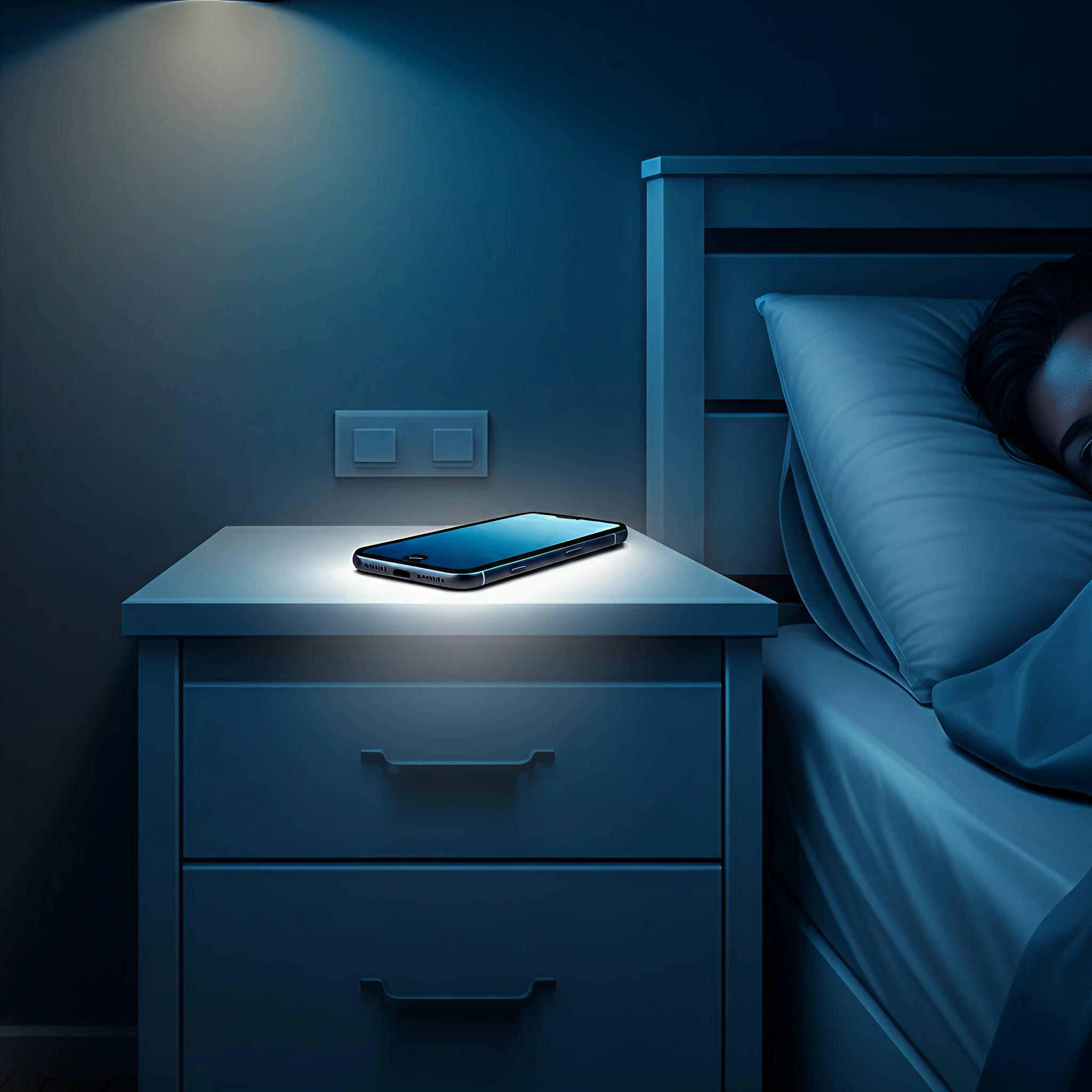Technology has revolutionized modern life, providing convenience, productivity, and entertainment at our fingertips. But as technology continues to integrate with our daily routines, it’s also complicating one critical aspect of our health—our sleep. While it’s tempting to scroll through TikTok or check emails in bed, could these habits be impacting your sleep quality in ways you don’t realize?
This post explores six ways technology affects your sleep health and provides actionable advice to take back control of your nightly routine. From blue light to late-night pings, we’ll break down how tech can disrupt your rest and what you can do to sleep more soundly.
1. Blue Light and Its Role in Sleep Disruption
The blue light emitted by phones, tablets, laptops, and TVs is a leading culprit in sleep disturbances. Research shows that blue light suppresses the production of melatonin, the hormone responsible for regulating your sleep-wake cycle. This essentially tricks your body into thinking it’s still daytime, which can make falling asleep a challenge.
Quick Fix:
- Use Night Mode: Enable “Night Shift” or “Blue Light Filter” on your devices to reduce blue light exposure.
- Limit Screen Time Before Bed: Put your devices down at least an hour before you head to bed.
- Invest in Blue Light Glasses: If avoiding screens isn’t feasible, blue light-blocking glasses can minimize its impact.
2. Binge-Watching and Sleep Habits
Streaming platforms like Netflix and YouTube have transformed our evenings into binge-watching marathons. Engaging content keeps your mind stimulated, preventing you from winding down. Not to mention, the “auto-play” feature can make bedtime vanish in an instant.
Quick Fix:
- Set Alarms for Bedtime: Use a digital reminder to notify you when it’s time to turn off the TV.
- Schedule Your Shows: Decide in advance how many episodes you’ll watch in one sitting.
- Turn Off Auto-Play: This one small step can stop you from falling into the “just one more” trap.
3. Notifications Disrupt Sleep Patterns
Late-night pings from emails, social media, or messaging apps can jolt your brain out of its restful state and interrupt your natural sleep cycle. Even the anticipation of a notification can cause subtle anxiety, making your mind restless.
Quick Fix:
- Activate Do Not Disturb Mode: Silence notifications during your sleep hours by enabling this feature.
- Put Devices in Another Room: Keeping your phone out of arm’s reach reduces the temptation to check it.
- Practice “Notification-Free Zones”: Set hard boundaries to limit device usage before sleeping.
4. Social Media and Mental Stimulation
Scrolling through Instagram or mindlessly swiping on TikTok before bed can overstimulate your brain, keeping it in “active mode.” Engaging with emotionally charged content—be it a heated debate or exciting news—can raise cortisol levels, resulting in delayed sleep onset and poorer sleep quality.
Quick Fix:
- Establish a Digital Curfew: Log off from all platforms at least 30 minutes to an hour before bed.
- Switch to Passive Activities: Trade your phone for an old-school book or soothing music.
- Customize Your Feed: Follow accounts that promote relaxation and avoid triggering content in the evening.
5. Dependence on Devices for Alarms
While it might seem convenient to use your smartphone as an alarm clock, reaching for your phone first thing in the morning isn’t ideal for building a healthy sleep routine. This habit can lead to doom-scrolling or checking emails before you’ve even left bed, which negatively affects your mood and energy for the day.
Quick Fix:
- Use a Traditional Alarm Clock: Keep your phone away from your bedside entirely.
- Wake to Natural Light: Consider investing in a sunrise alarm clock that mimics the rising sun to wake you gently.
- Avoid Checking Notifications: Develop a habit of waiting until you’re up and moving to check your phone.
6. Sleep Monitoring Apps – Are They a Help or a Hindrance?
Sleep tracking apps can help you monitor your sleep patterns and offer insights into behaviors that may be harming your rest. However, overanalyzing your sleep data can lead to increased anxiety, ironically making it harder to get a good night’s sleep.
Quick Fix:
- Lean on Trends, Not Daily Data: Use sleep apps to notice patterns over weeks rather than obsessing over each night’s data.
- Pair Apps with Lifestyle Changes: Use the insights provided to adopt healthier habits rather than dwelling on metrics.
- Opt for Science-Backed Trackers: Stick to reliable devices like Fitbit or the Oura Ring for accurate results.
Take Charge of Your Sleep Health
While technology isn’t inherently bad, understanding how it affects your sleep health is the first step toward balanced living. Whether it’s turning off notifications, curbing screen time before bed, or rethinking how you use sleep-tracking apps, these small changes can make a massive difference in how you recharge at night.

